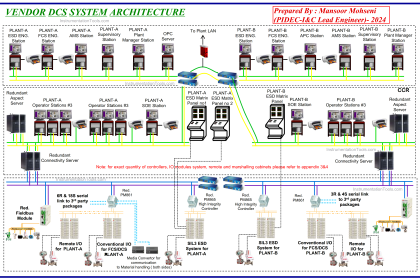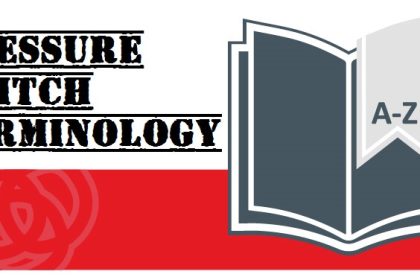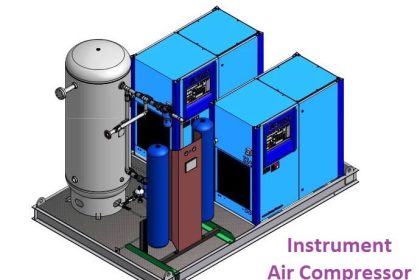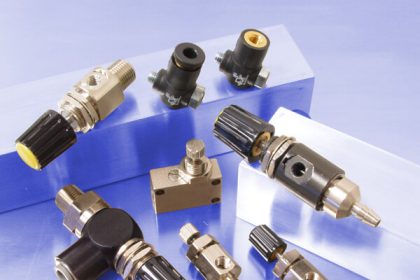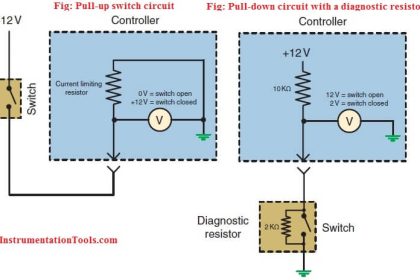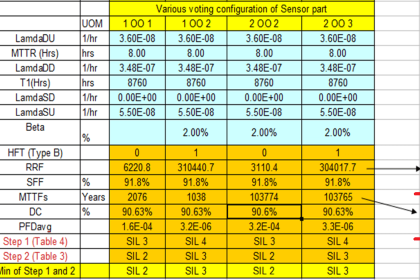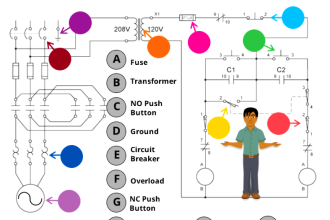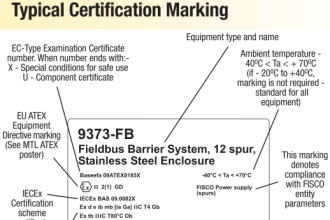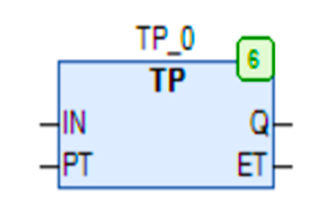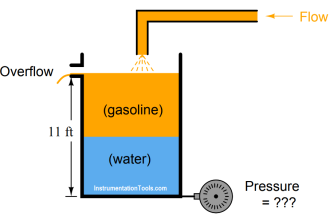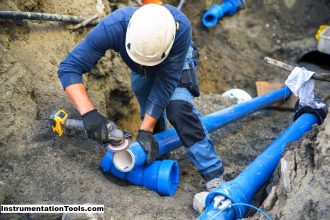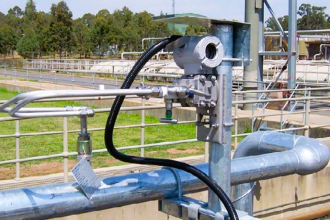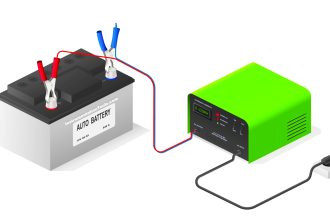Considering the roles and responsibilities of Detail Design Engineering Teams (DDET), and the wide range of activities, documentation, coordination, project aspects, and interactions with all parties engaged in one Industrial Process Plant Project, the specialists working in such teams shall have a great number of skills and competencies (refer to the article mentioned in references).
Furthermore, the I&C team of Detail Design Engineering Companies, similar to the Process/ Safety Team, are engaged in project execution from the early beginning up to the end of the project, so they shall have enough good competencies in all required aspects for reaching the project success targets. In this article we try to review the Competency factors of I&C Team/ Engineer in detail Design Engineering Companies.
Lizard Model of Detail Design Engineering Competency Aspects:
Detail Design Engineering Teams can be considered as the main core role of execution of an Industrial Process Plant Project since they have close coordination with other teams in different stages of the project. Figure-1 shows a model of such interactions, which can be considered as the Lizard Model (refer to reference article).
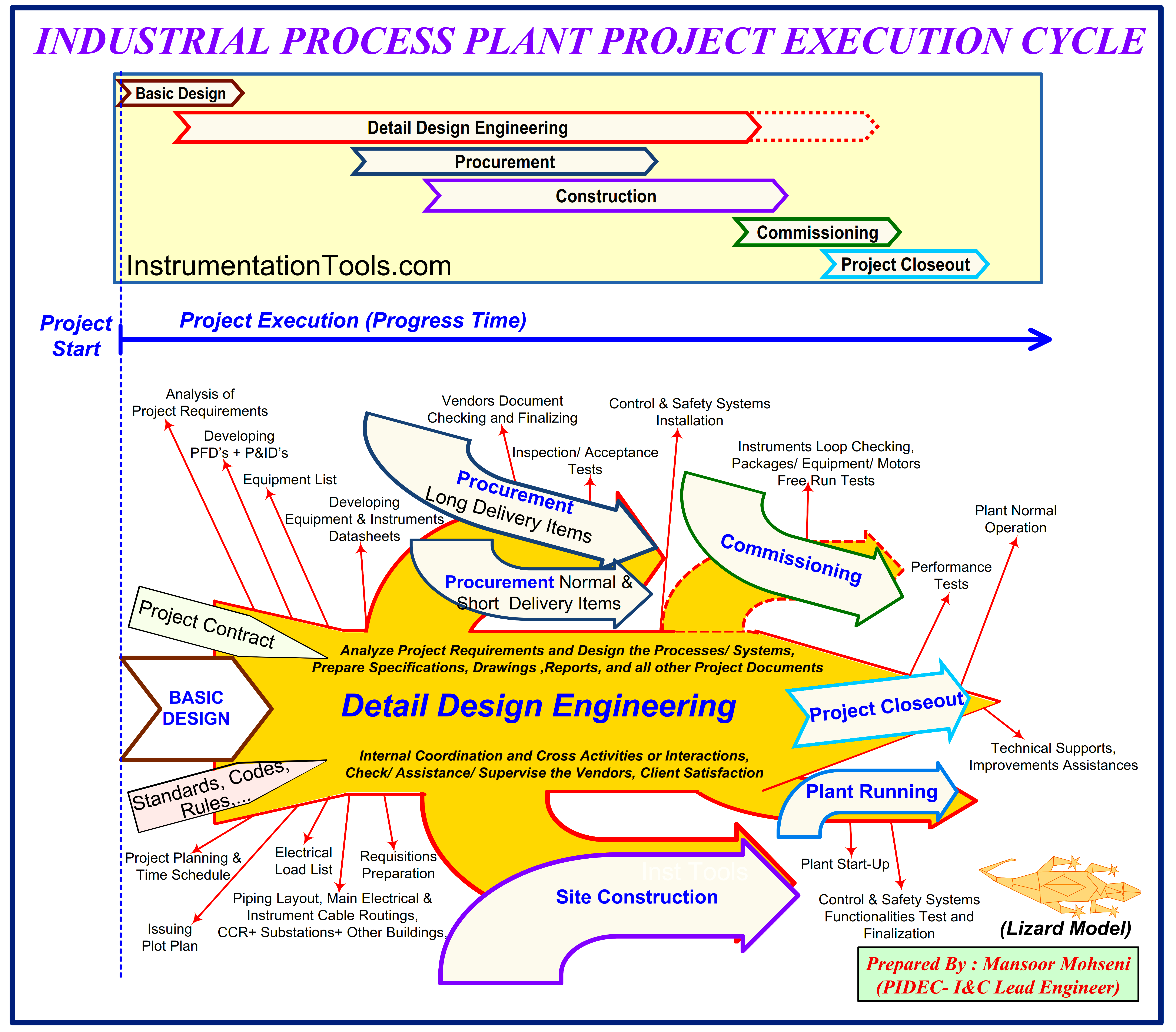
Figure-1: “Lizard Model” of Industrial Process Plant Project Execution Cycle.
Figure-1 shows good senses for the engagement or interactions of Detail Design Engineering Teams (DDET) with other parties of different phases of Industrial Process Plant Project Execution. However, some detailed activity aspects are identified during project progress execution. Furthermore, the detail expected activities titles are specified in the Lizard body too.
Figure-1 also shows some of the more important documents and activities of the Industrial Process Plant Project that shall be begun for preparation at the shown project progress axis. Based on such project progress monitoring approximately all DDET are engaged and responsible during Process Plant Project Execution cycle, but by more detail study you may find that Process and I&C Teams are responsible from early beginning of DDET activities (Providing PFD and P&ID’s and arranging Process Control Systems Philosophy) up to end of DDET activities (which is providing plant normal operation by implementing all required functionalities and modifications in Process Control & Safety Systems). Similar to the Process/ Safety Team, I&C Team roles may be continued even after project closeout for any future support for modifications and changes.
However, considering the main core role of Detail Design Engineering Teams in the execution lifecycle of Industrial Process Plant Projects, we can conclude that the different teams engaged in this phase shall have great competencies. This finding for the I&C Team is so important since, similar to Process/ Safety Teams they will have a wide responsibilities and documentations from beginning of the project up to end of it. So we try to review some competency factors of such specialists.
Complex Knowledge Sectors for I&C Team/ Engineer
Before starting our study for required competency factors, let us focus on different knowledge sectors that may be required as the basis of such activity roles. In fact, by quick investigation we may find the required knowledge that are generally intercept or overlap to each other as shown in Figure-2.
Mainly, such knowledge sectors may include:
- Electronics
- Electricity
- Control Systems & Theory
- Computer & Digital Systems (including Communications)
- Standards & Technologies
- Basic Skills & Knowledge
- Software / Programs
- Other Engineering & Extra Sciences
Some of the key titles or aspects of such knowledge sectors (for each part) that are required for target activities are shown in Figure-2.
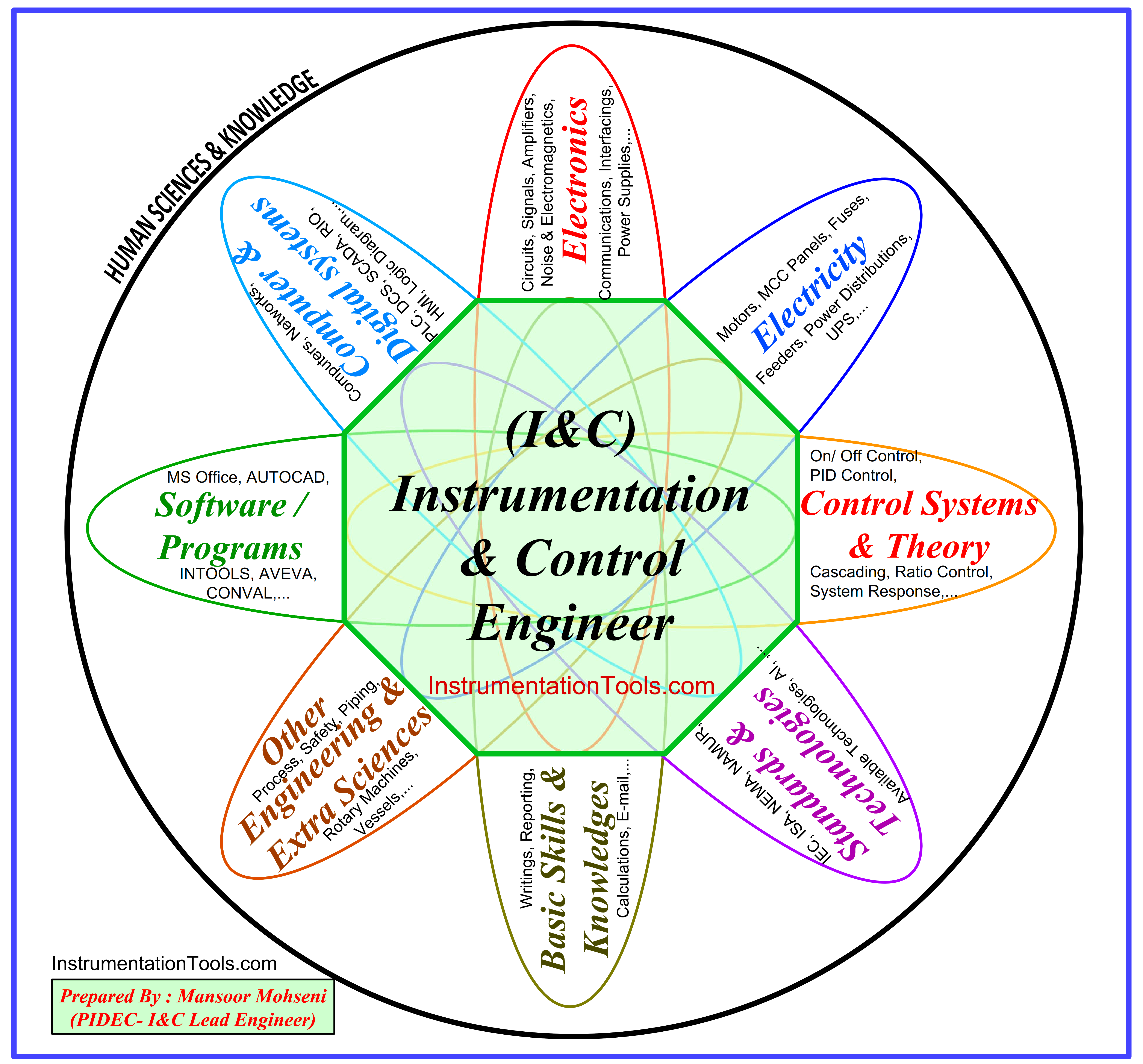
Figure-2: Complex Knowledge Sectors for I&C Team/ Engineer.
In fact, the main knowledge sectors shown in Figure-2 are needed for providing required instrumentation (installation and conditioning of all required process parameters measuring/ monitoring/ controlling, devices/ instruments and actuators) and implementing required Process Control & Safety Protection functionalities (via control & safety systems) and developing all required connections and signal interfaces. Details of such activity goals can be studied in reference articles.
However, since the main items of target team or engineer includes Instrumentation, Control, and Electrical signals (and other relevant power considerations), so usually such team or engineer is known or called as I&C, C&I, E&I, IE, or sometimes just as Instrumentation engineer or team, or even just as Automation engineer or team. Regardless of the title of such an engineer or team, he/she/they shall apply or use the main knowledge sectors shown in Figure-2.
For simplicity in the continuation of our study in this article, we use the abbreviation of ICE as Instrumentation Control Engineer, while the considered activity roles are like the above-mentioned items.
It is very important to notice that further to the main required knowledge, ICE in different industries or process functions shall be more familiar with the applied sciences or technologies in those ones. So it is clear now why in Figure-2 one sector is mentioned as other engineering and extra sciences. Also, if ICE helps other engineering disciplines for purchasing and employing process packages or equipment, he/she shall know relevant knowledge to them (as examples, Rotary machines, Vessels, Furnace Heaters, …).
Key Components in the Scope of Works for Instrument and Control Engineer (ICE)
Since the scope of works and activities of ICE may have some great differences in different projects or industries, let us focus our approaches to roles and responsibilities of ICE in Process Plant Industries and especially in Detail Design Engineering Companies. Such consideration may approximately include all other similar situations in other industries or job position ranges, since they are considered as subcategories of the selected mentioned situation.
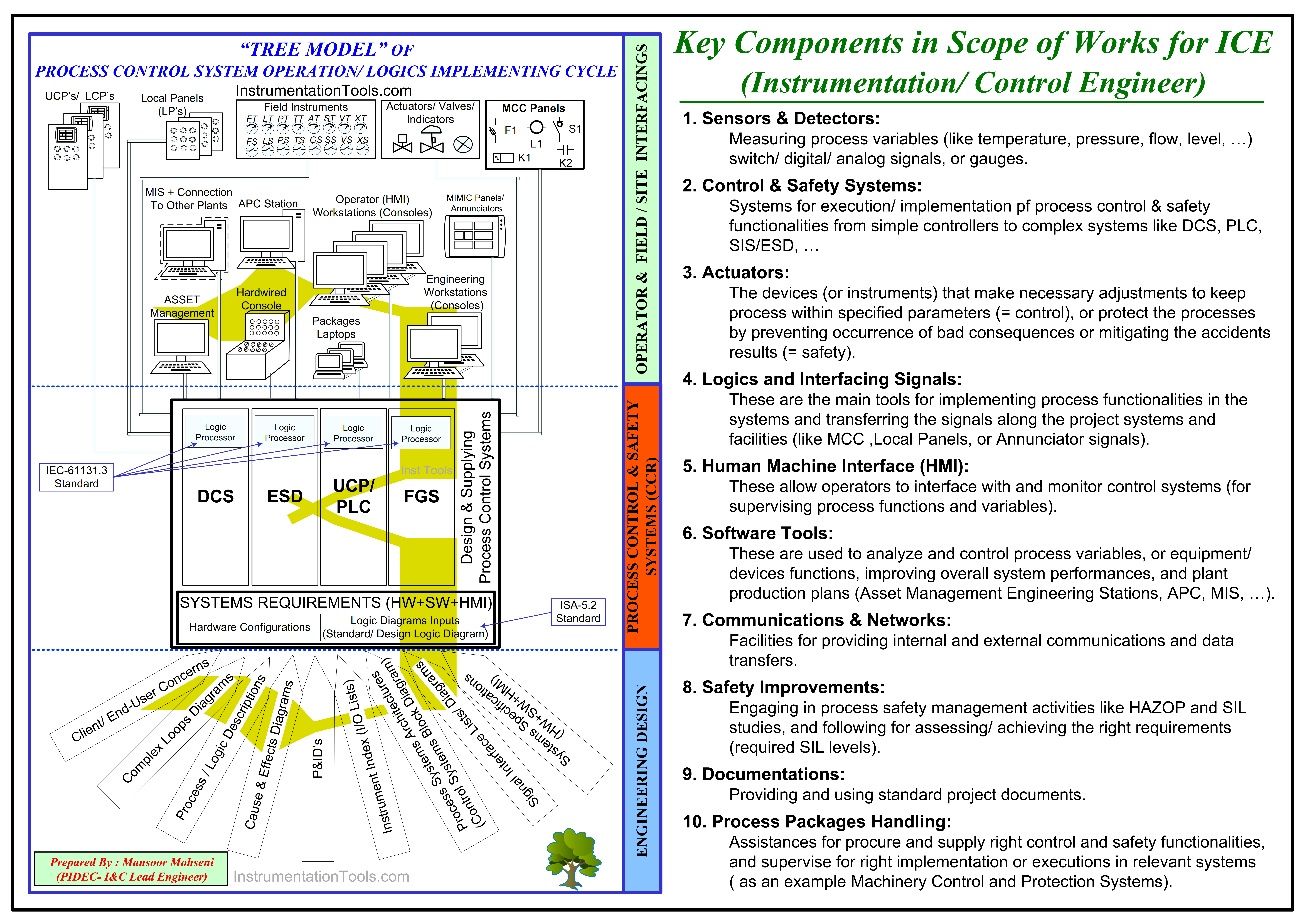
Figure-3: Key Components in Scope of Works for I&C Team/ Engineer.
Figure-3, by using Tree Model overview, shows more details on key components in the scope of works for Instrument and Control Engineers on defined situation, which can be listed as:
- Sensors & Detectors
- Control & Safety Systems
- Actuators
- Logics & interfacing Signals
- Human Machine Interface (HMI)
- Software Tools
- Communications & Networks
- Safety Improvements (or Developments)
- Documentations
- Process Package Handling
The detail aspects of the above-mentioned key components are described in Figure-3.
Competency Factors for Instrumentation Engineer (in Detail Design Engineering)
Now, by knowing the importance of instrumentation & control engineer (ICE) roles in Detail Design Engineering activities and due to Key components relevant to ICE, we may investigate the competency skills factors of ICE.
Before starting our investigation, it should be noted that due to the wide range of scope items, it is expected that we will find many factors, but such factors shall be satisfied by the whole I&C Team, while each ICE member of the team shall try to earn such factors as much as possible. If all factors earned by all ICE members of Team, the team may (possibly) have maximum efficiency and flexibility (for doing the jobs) more quickly with higher quality, but generally it is not the real case, and in fact doing all required jobs will be implemented by teamwork and so earning the maximum factors may be done via I&C Team. It means that the earned values of our study factors will be different among the ICE members of the team.
For more clarifications, it is reminded that DDET jobs and actions will have so many aspects (due to working with different parties and specialists in different phases of execution cycle of Industrial Process Plant Project), and also remind that the key components of ICE scopes are at least 10 general titles, while each title will have so many subjects and each subject needs so many knowledge.
As an example notice that the Sensors & Detectors (the first mentioned key components) can be applied to so many process parameters (like Pressure, Level, Temperature, Force, Speed, Flow …) and the measurement and producing signal for each parameter may be implemented by different ways and technologies (as example Level Measurement may be done by floater, displacer, radar, ultrasonic, differential pressure, …, and the signal may be considered as switch, analog, fieldbus, radio,..), and for caring the relevant data, ICE needs so many sciences like Physics, Chemistry, Hydraulics, … and many practical conditions (like connection, installation hook-up, operation/ maintenance access, accuracy, calibration,…and too many detailed items and relevant coordination too.
By mentioned example you may conclude that ICE shall have or earn enough abilities or skills on so many items and subjects, while please remind that the example was just relevant to first key components of ICE and still at least nine key components are remained and each one will have great (huge) more subjects and sciences. So it is easily expected that each ICE cannot easily find all competency factor items (sciences and skills) for all target subjects, although you may see some ICE specialists that have good abilities for most of them. It is clear that for reaching such a level of competency, so many years, practices, trainings, and endeavors are needed.
In fact, different members of the I&C Team may have some precedencies on following their own subjects in such a way that total integration of all members’ competencies provide required team competency. So, for reaching good overall competency, the I&C team shall have at least some experienced/ competent ICE, especially for the conception of overall Process Control & Safety Systems Philosophy.
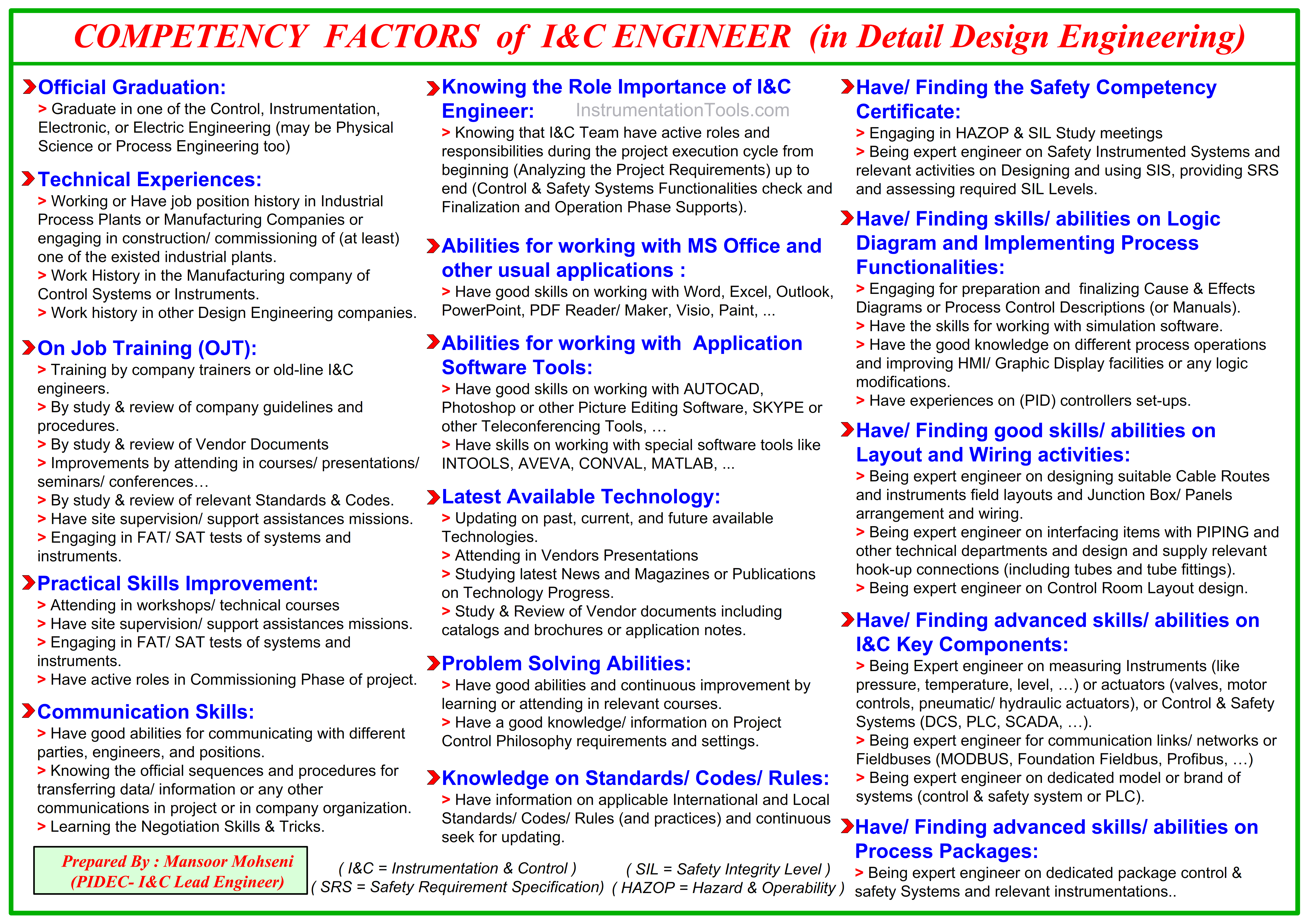
Figure-4: Competency Factors of I&C Team/ Engineer (in Detail Design Engineering).
Figure-4 shows some general competency factors of I&C Team/ Engineer specially required for members of Detail Design Engineering Team (DDET). It shall be repeated that such items are considered for Detail Design Engineering since the specialists in other modes of activities (like ICE operators or maintenance specialists,…) can be considered as some subclasses of our mentioned consideration (for reaching competencies), and also the detail ability degree on each factor for ICE in DDET shall be as high as to enable him/her for making best design and selecting the best solutions (while the other ICE may be considered just as users).
Now referring to Figure-4 we try to review some general characteristics of competency factors of I&C Engineer (or Team).
Official Graduation
I&C engineers need a solid foundation in engineering principles, mathematics, and physics. They should also have a deep understanding of subjects like fluid mechanics, thermodynamics, and electrical circuits.
Referring to Figure-2 it would be better that:
- ICE has graduation in one of the Control, Instrumentation, Electronic, or Electric Engineering (may be Physical Science, Process or Computer Engineering too). Of course, ICE with one of the mentioned title graduate will have the base potential to find other ICE competencies or to reach the precedencies on some of them.
Technical Experiences
If ICE has the below histories in his/her resume, the progress times for reaching other competencies will be increased:
- Working or having job position history in Industrial Process Plants or Manufacturing Companies or engaging in the construction/ commissioning phase of (at least) one of the existing industrial plants.
- Work History in the Manufacturing Company of Control Systems or Instruments.
- Work History in Other Design Engineering Companies.
On Job Training (OJT)
ICE shall find some competencies or increase them via trainings while working as ICE, by one of the below ways:
- Training by company trainers or old-line I&C Engineers
- By study and review of Vendor Documents
- Improvements by attending courses/ presentations/ seminars/ conferences…
- By study and review of relevant Standards & Codes
- Have site supervision/ support assistance missions.
- Engaging in FAT/ SAT tests of Systems and Instruments
Practical Skills Improvements
Familiarity with various measurement devices, such as temperature sensors, pressure gauges, flow meters, etc., or investigating the actual functions of systems components is essential for selecting the right instruments or system and ensuring accurate data collection.
It can be improved by:
- Attending Workshops
- Have site supervision/ support assistance missions.
- Engaging in FAT/ SAT tests of Systems and Instruments
- Have active roles in the commissioning phase of the project.
Communication Skills
Effective communication is vital for I&C engineers, especially when conveying technical information to non-technical audiences. They must articulate complex concepts clearly and concisely, facilitating better collaboration across departments and ensuring everyone is aligned on project goals and requirements.
Strong communication skills are essential for the following:
- Collaborating with colleagues from various engineering disciplines
- Interacting with non-technical stakeholders
- Presenting ideas and designs effectively
- Managing projects and coordinating team activities
Clear communication builds trust, increases customer satisfaction, and improves project outcomes. Encouraging compliance with regulations, managing expectations, and addressing concerns contribute to smoother project execution.
By developing these essential skills, I&C engineers can position themselves for success in this rapidly evolving field. Continuous learning and improvement in these areas will help engineers stay competitive and contribute effectively to their organizations.
Since ICE has a lot of communication with different parties, teams, and specialists, he/ she must have or improve such subject by focusing on:
- Have good abilities for communicating with different parties, engineers, and positions.
- Knowing the official sequences and procedures for transferring data/ information or any other communications in the project or in the company organization.
- Learning the Negotiation Skills & Tricks
Knowing the Importance of Instrumentation Engineering
Designing an effective instrumentation and control (I&C) system requires careful planning and adherence to best practices. These practices ensure that the system is robust, scalable, and meets the industry’s safety requirements.
Conducting a thorough requirements analysis is crucial before starting the design process. This step involves gathering and documenting all the specifications for the I&C system. Engineers should work closely with process engineers to review essential documents such as process flow diagrams, material and energy balances, and piping and instrumentation diagrams (P&IDs).
A comprehensive analysis should also include:
- Identifying the hazardous nature of raw materials, chemicals, byproducts, and final products
- Reviewing process equipment layout drawings and unit plot plans
- Understanding the process control philosophy
By carefully examining these elements, engineers can lay a solid foundation for the system design and ensure that all critical aspects are addressed from the outset.
Designing I&C systems with scalability and flexibility is essential in today’s rapidly evolving industrial landscape. A modular approach to system design allows for easy integration of new technologies and adjustment of functionalities without overhauling the entire system.
Referring to Figure-1, the I&C Team will have the effective roles in an Industrial Process Plant Project from the beginning stage up to the end of the project. Figure-4 shows some of such detail planning confirmation made in (extracted pages of) one of the good books published in the field of Process (Oil & Gas) Industries. ICE shall be aware that:
- Knowing that I&C Team have active important roles and responsibilities during the project execution cycle from beginning (Analyzing the Project Requirements and providing early PFD and P&ID documents and provision of Process Control & Safety Systems Philosophy) up to end of the project ( Control & Safety Systems Functionalities Check and Finalization, and Operation Phase Supports).
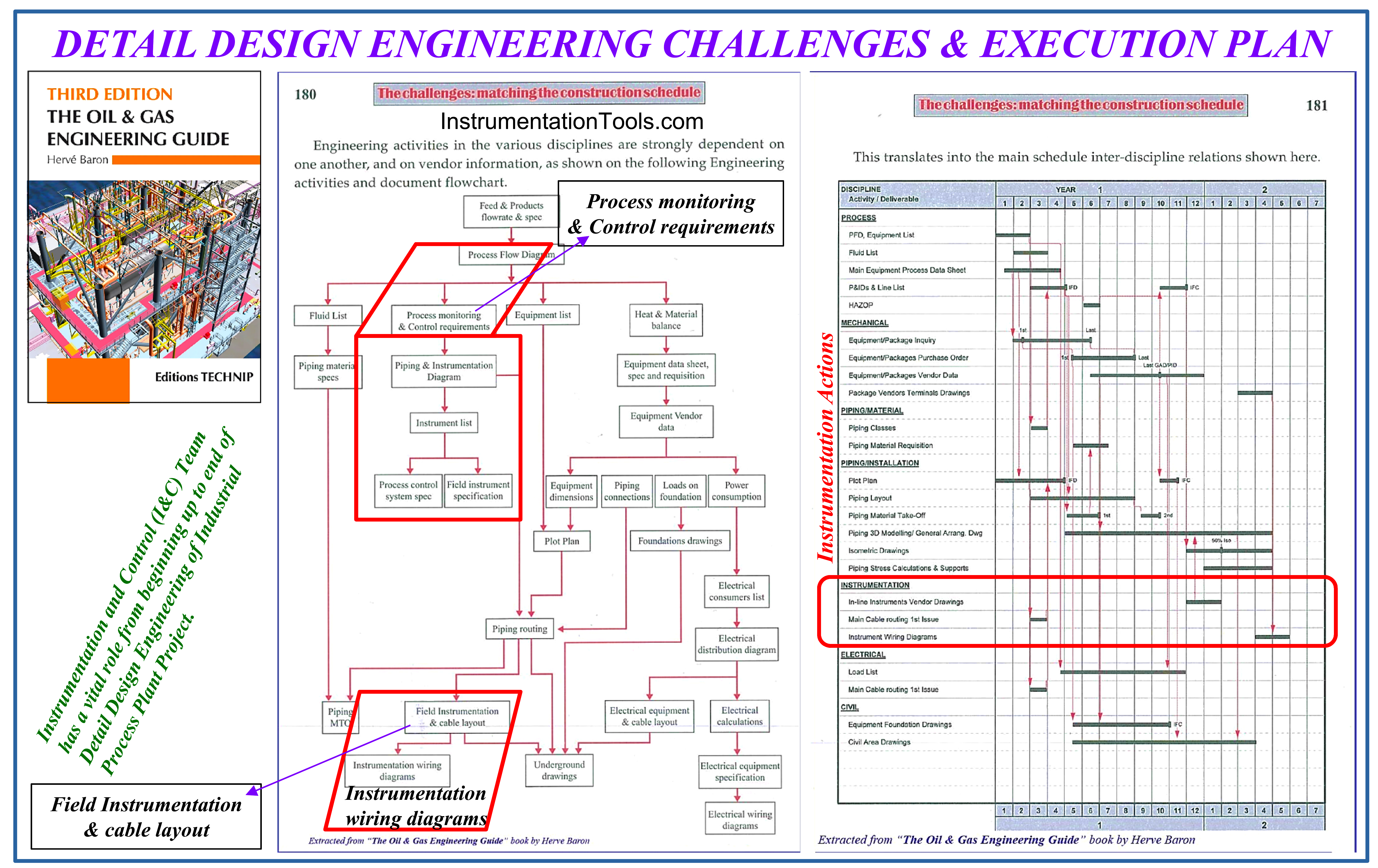
Figure-5: Detail Design Engineering Challenges & Execution Plan (extracted from “The Oil & Gas Engineering Guide” book by Herve Baron)
Ability to work with MS Office Tools and other usual applications
Since ICE will have the ability to produce and edit different documents and similar facilities, it is required to:
- Have good skills in working with Word, Excel, Outlook, PowerPoint, PDF Reader/ Maker, Visio, Paint, …
Ability to work with Application Software Tools
Since ICE shall have good abilities for producing and editing drawing and Photo documents and similar facilities, further to work with some special calculation software tools it is required to:
- Have good skills in working with AUTOCAD, Photoshop or other Picture Editing Software, SKYPE or other Teleconferencing Tools, …
- Have skills in working with special software tools like INTOOLS, AVEVA, CONVAL, MATLAB, …
Latest Available Technology
Since ICE shall do the designs based on the latest approved technologies and the advantages or defects of current and past technologies, first, it is required to study some relevant basic books (see Figure-6), and then it is required to improve himself/ herself by:
- Updating on past, current, and future available Technologies.
- Attending Vendors’ Presentations.
- Studying latest News and Magazines or Publications on Technology Progress.
- Study & review of vendor documents, including catalogs and brochures or application notes.
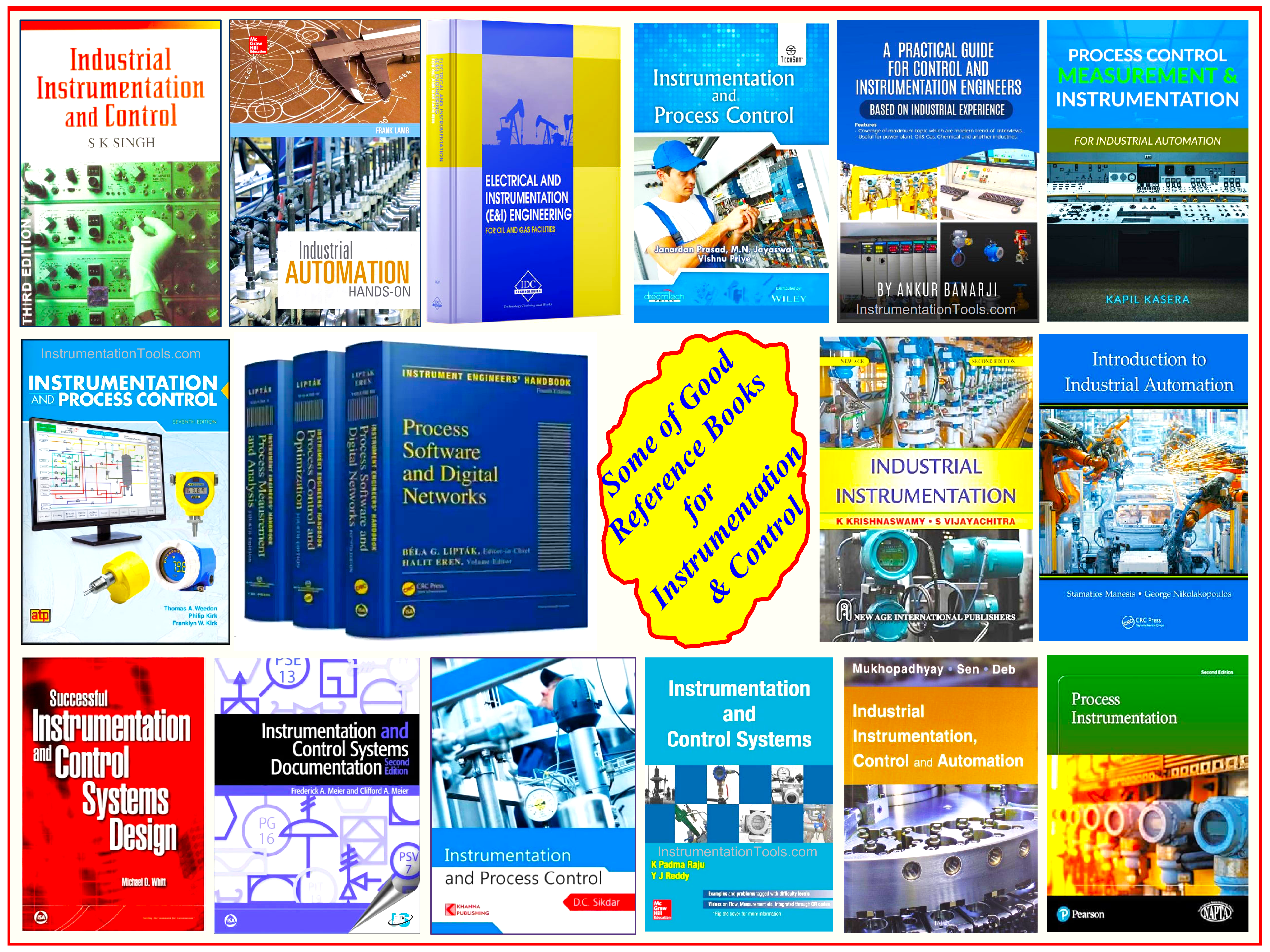
Figure-6: Some of the Good Reference Books for Instrumentation & Control.
Problem-Solving Abilities
I&C engineers must be adept at identifying, analyzing, and solving complex technical problems. This skill is essential for diagnosing issues in control systems and developing effective solutions to enhance performance and reliability. The ability to evaluate complex information and make sound decisions is crucial, especially in situations that require quick thinking and balancing multiple factors.
Engineers should apply critical thinking to troubleshoot and develop innovative solutions that enhance system functionality. This requires a systematic approach and a creative mindset to overcome technical challenges.
Relevant to this competency, ICE shall:
- Have good abilities and continuous improvement by learning or attending relevant courses.
- Have good knowledge/ information on Project Control Philosophy requirements and settings.
Knowledge of Standards/ Codes/ Rules
Standards/ Codes/ Rules have an important roles for Process Plant Designs and such items identifies the imaginary boundaries of the designs and describe or characterize the required specifications. They are some applied essential ones existed for ICE, and some of them are shown in Figures 7 to 11.
ICE shall be aware of this competency factor and:
- Have information on applicable International or Local standards/ Codes/ Rules (and practices) and continuously seek to update.
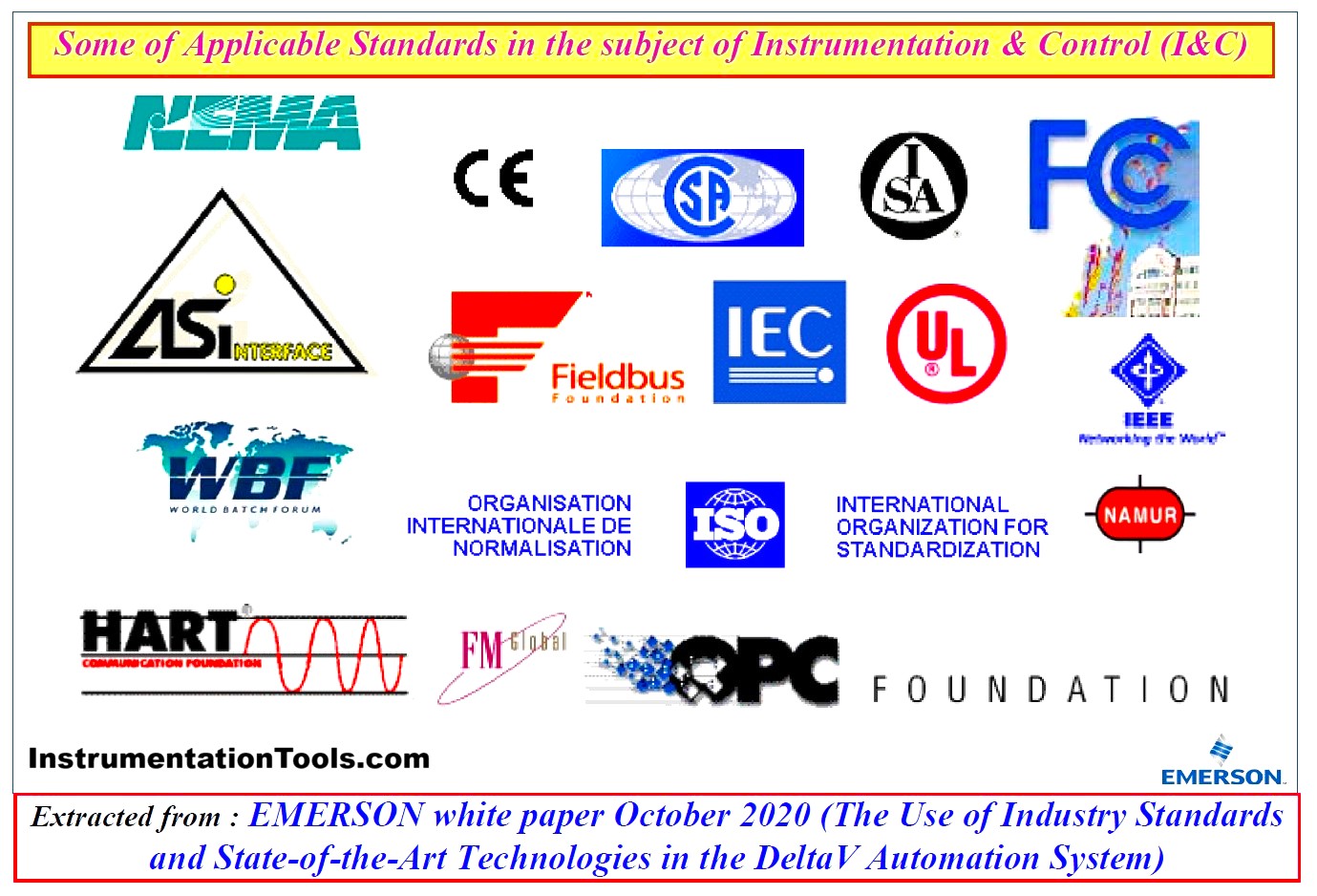
Figure-7: Some of the Applicable Standards in the subject of Instrumentation & Control (I&C).
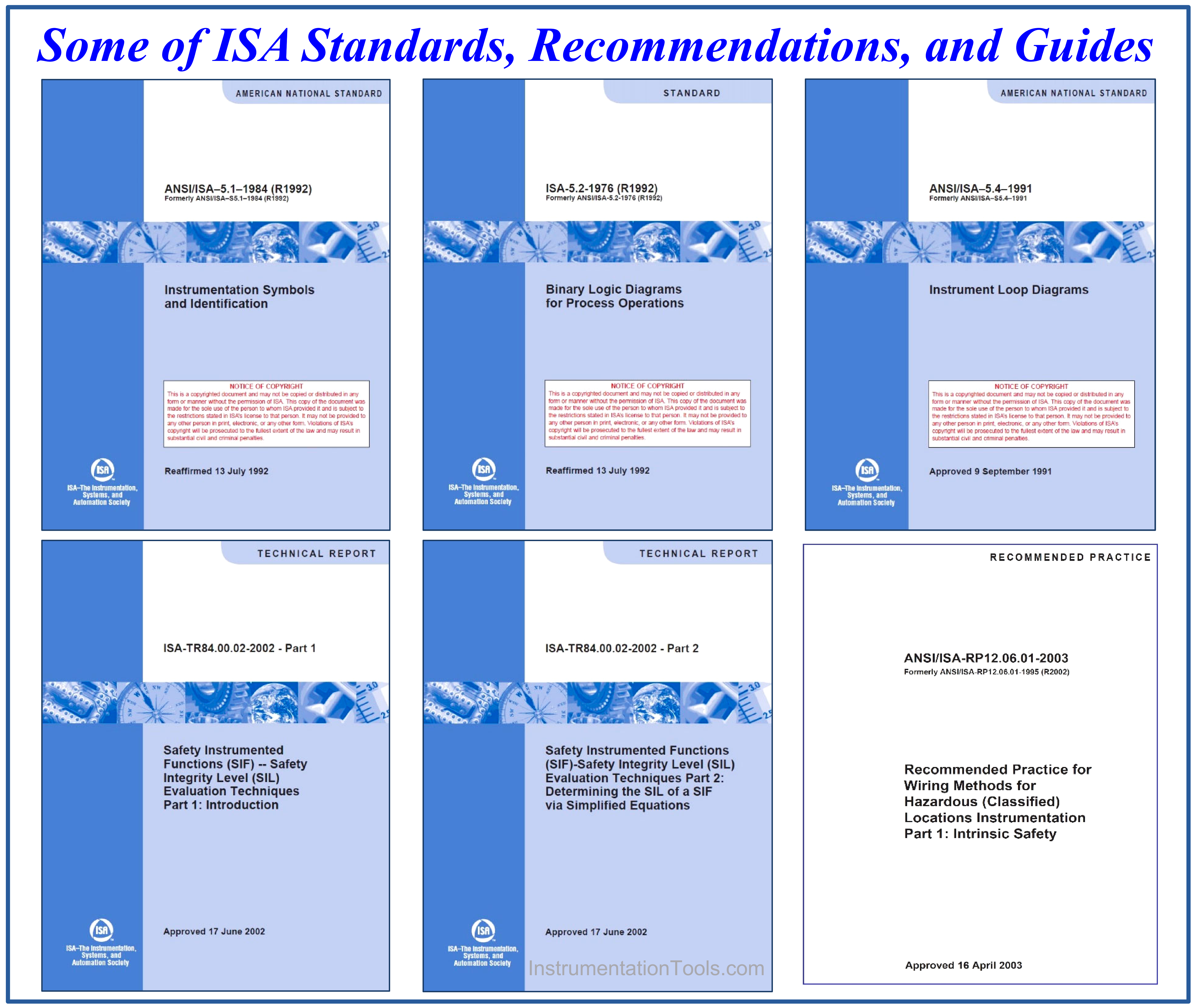
Figure-8: Some of ISA Standards, Recommendations, and Guides.
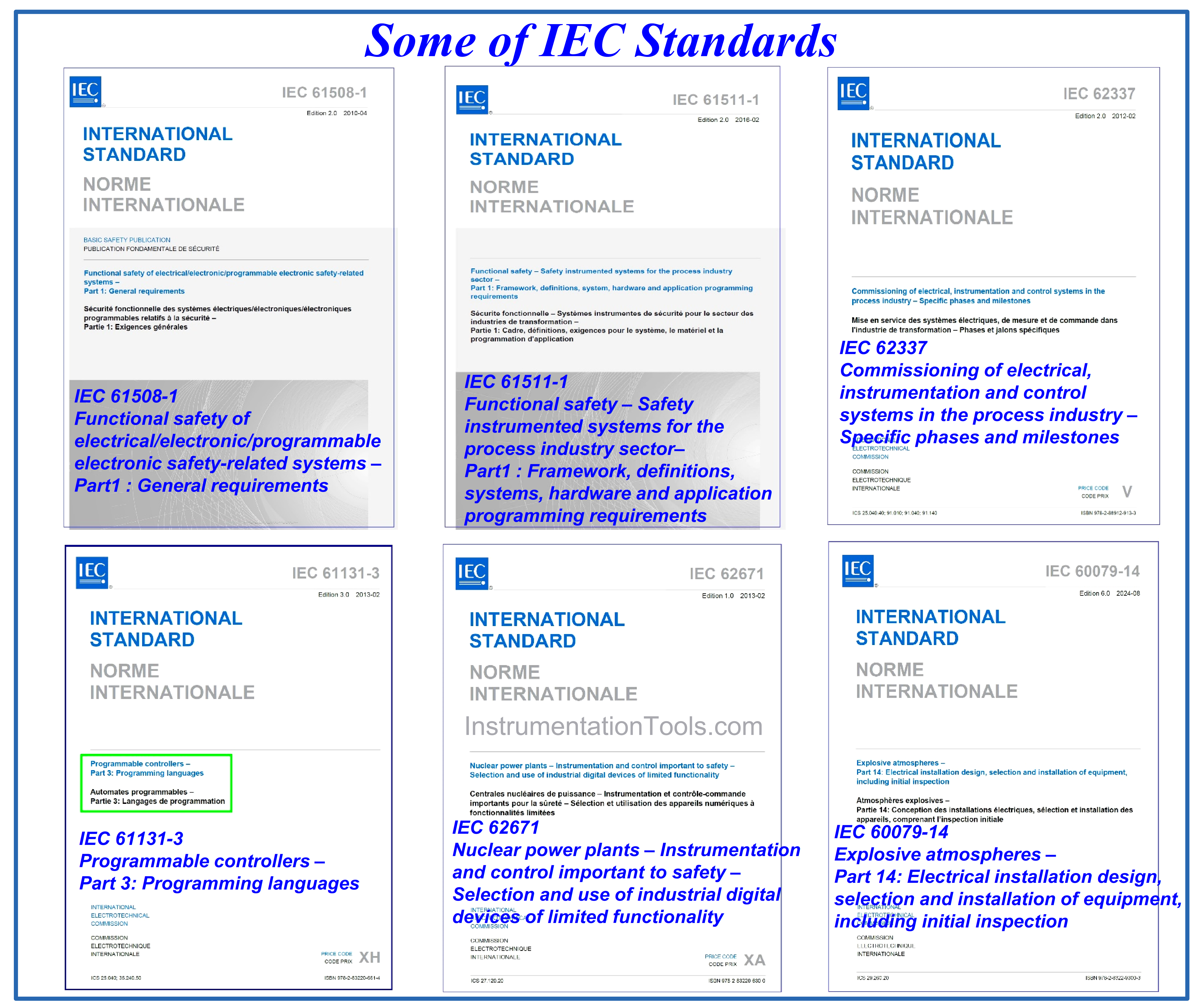
Figure-9: Some of IEC Standards.
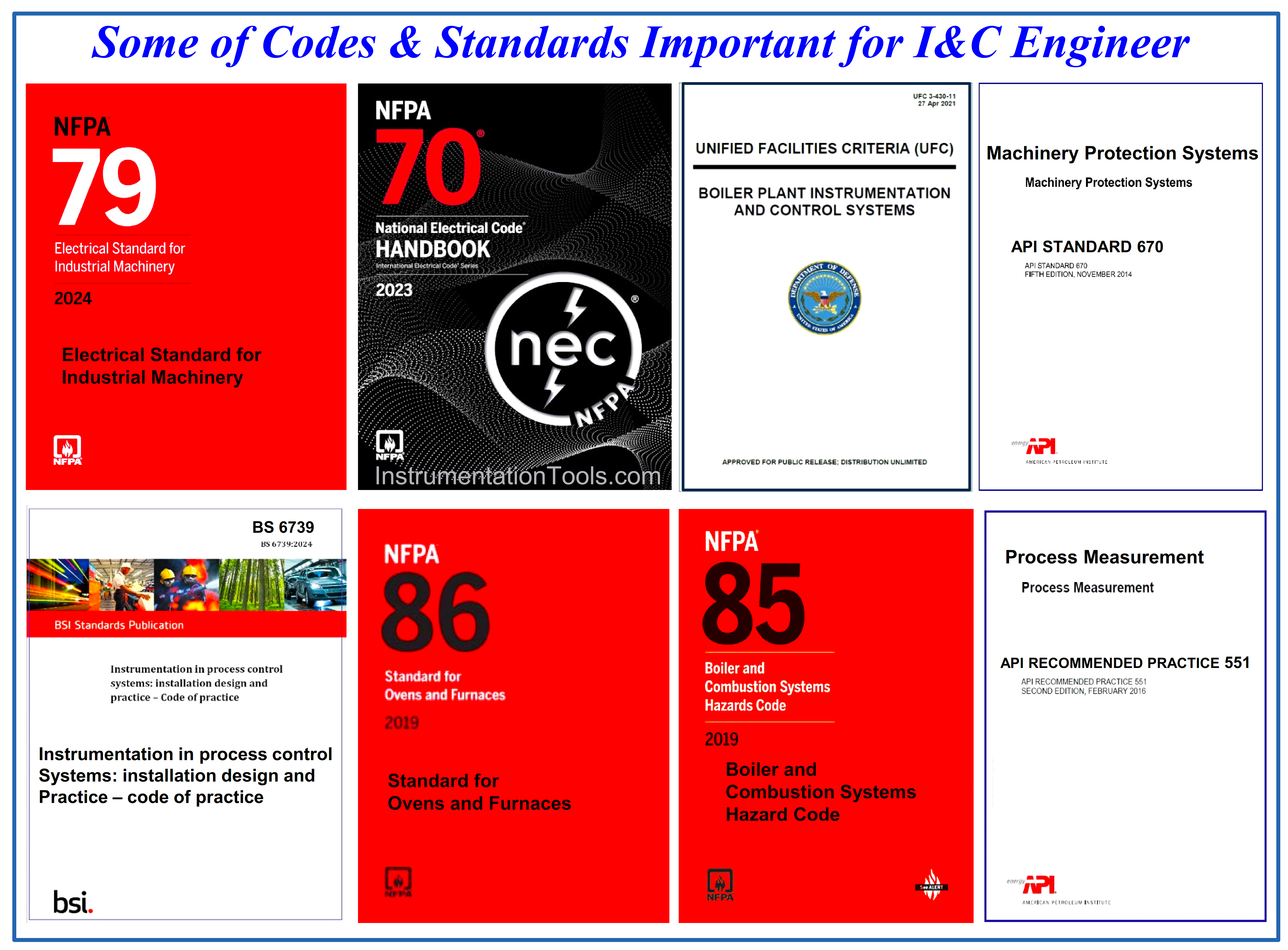
Figure-10: Some of the Codes & Standards important for I&C engineers.
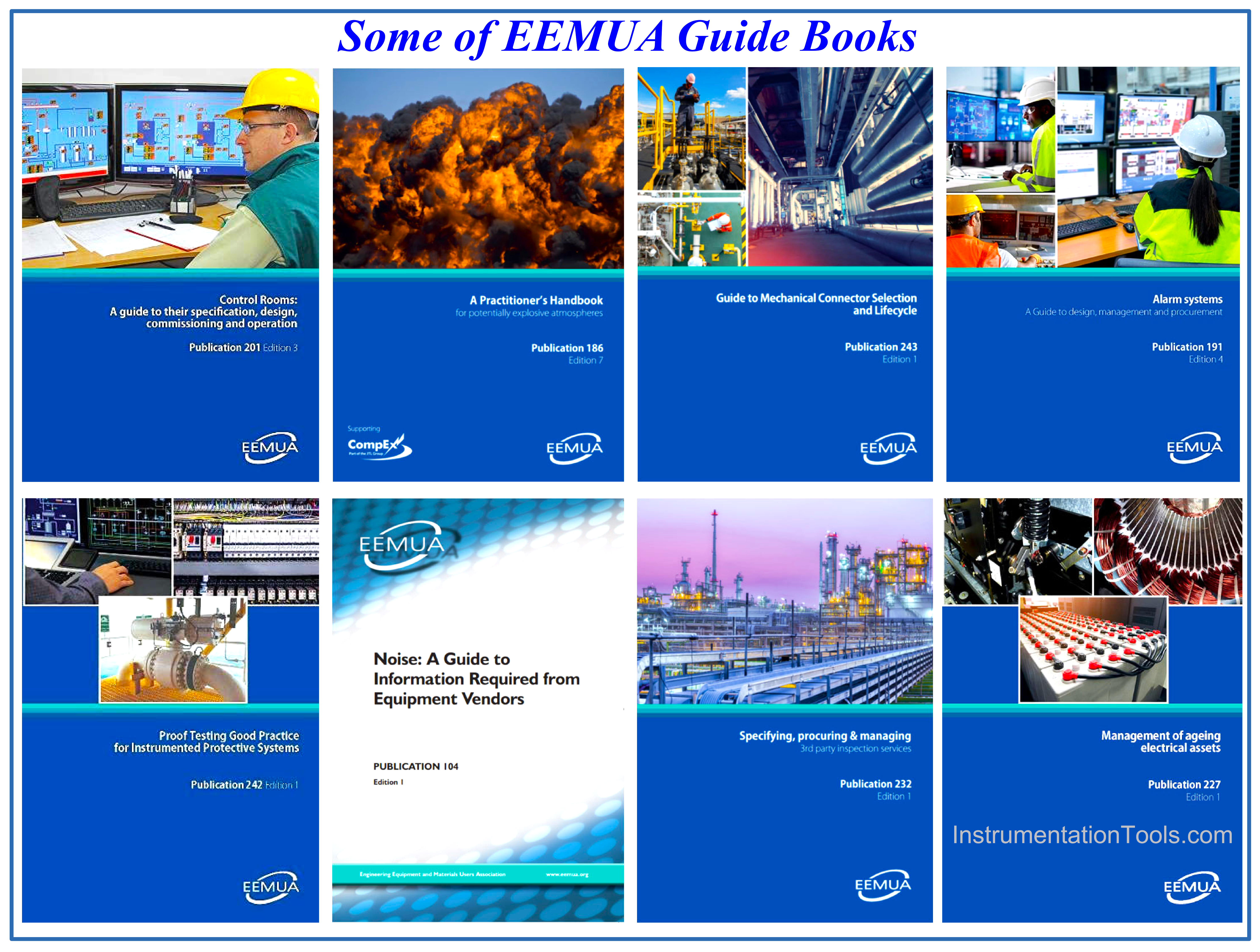
Figure-11: Some of Codes & Standards important for I&C Engineer.
Have/ Finding the Safety Competency Certificate
Safety is paramount in Instrumentation & Control system design, especially in industries like Nuclear Power, Process, and Oil and Gas. Engineers must incorporate robust safety features and comply with industry standards to minimize risks and ensure reliable operation.
Key safety considerations include:
- Implementing redundancy in critical components and networks
- Ensuring strict one-way data flow from safety to non-safety subsystems
- Incorporating advanced fault diagnostics and channel isolation in I/O modules
- Conducting thorough HAZOP (Hazard and Operability) studies led by experienced professionals
ICE shall study safety guidelines (some of them are shown in Figure-12) and follow them to get the required safety certificates in order to:
- Engaging in HAZOP & SIL Study meetings.
- Being an Expert engineer on Safety Instrumented Systems and relevant activities on designing and using SIS, providing SRS, and assessing required SIL levels.
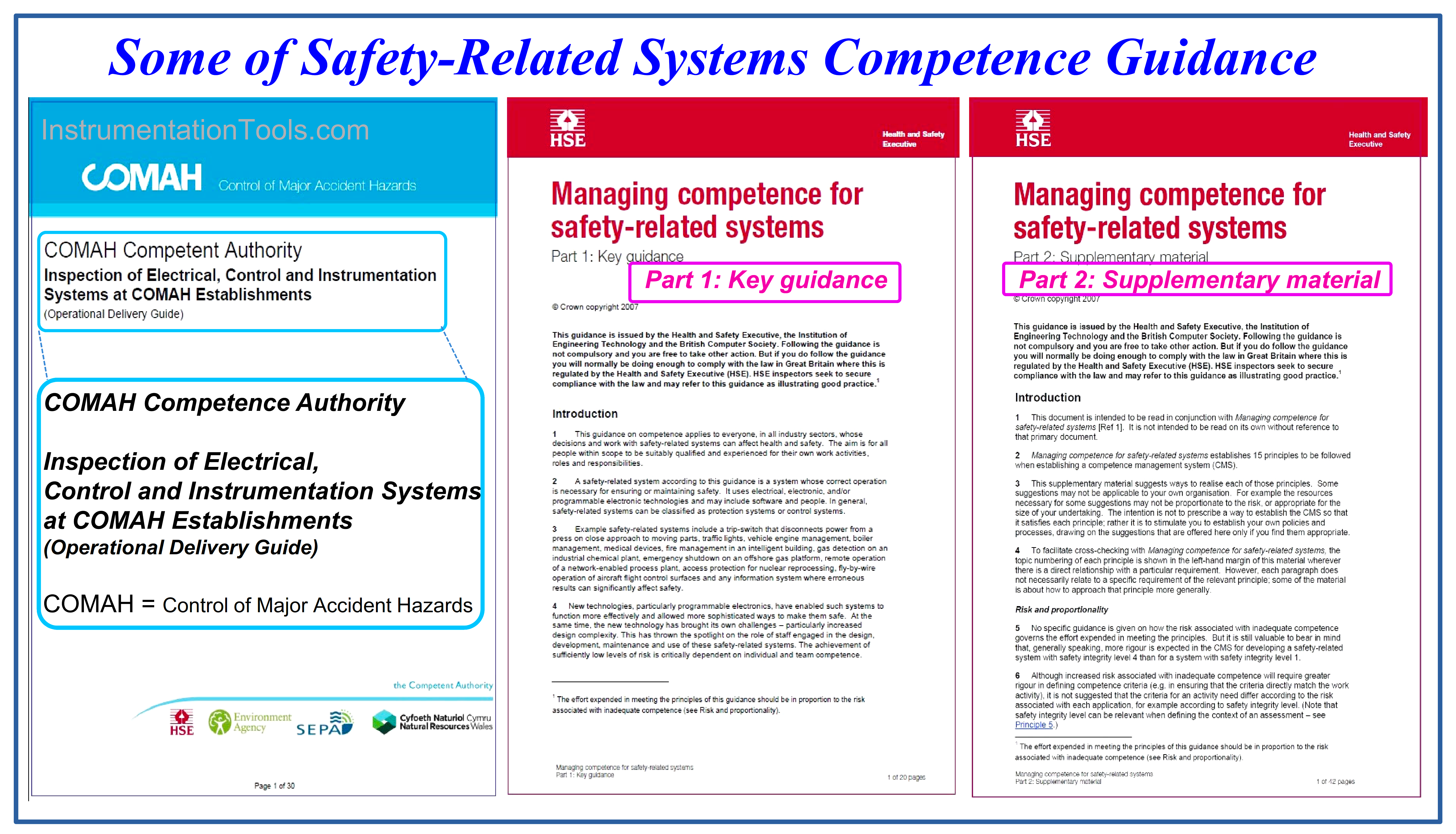
Figure-12: Some of Safety-Related Systems Competence Guidance.
Have/ Finding skills/ abilities on Logic Diagram and Implementing Process Functionalities
For supplying, configuring, and finalizing the Control & Safety Systems, ICE shall produce some documents and do some actions like:
- Engaging in preparation and finalizing Cause & Effects Diagrams or Process Control Descriptions (or Manuals).
- Have the skills for working with simulation Software.
- Have good knowledge of different process operations and improving HMI/ Graphic Display Facilities or any logic modifications.
- Have experience on (PID) Controllers’ set-up.
Have/ Finding good skills/ abilities in Layout and Wiring activities
ICE for doing the proper design on installation and connection of Instruments and Systems Components shall follow for:
- Being an expert engineer in designing suitable Cable Routes, instruments field layouts and Junction Box/ Panels arrangement and wiring.
- Being an expert engineer on interfacing items with PIPING and other technical departments and designing and supplying relevant hook-up connections (including tubes and tube fittings).
- Being an expert engineer on Control Room Layout Design.
Have/ Finding advanced skills/ abilities on I&C Key Components
It is clear that ICE shall have some precedencies on I&C key components by:
- Being an expert engineer on measuring instruments (like pressure, temperature, level …) or actuators (valves, motor controls, pneumatic/ hydraulic actuators), or Control & safety Systems (DCS, PLC, SCADA …).
- Being an expert engineer for communication links/ networks or Fieldbuses (MODBUS, Foundation Fieldbus, Profibus …).
- Being an expert engineer on a dedicated model or brand of systems (control & safety system or PLC).
Have/ Finding advanced skills/ abilities on Process Packages
In order to help or assist the other departments for design and purchasing/ supplying the Process Packages and equipment, ICE shall follow for:
Being an expert engineer on dedicated package control & safety systems and relevant instrumentations.
Usually package vendors and suppliers or even industry leaders provide some guidance or specifications for I&C items in their scopes. Some of such guidance are shown in Figures 10 and13.
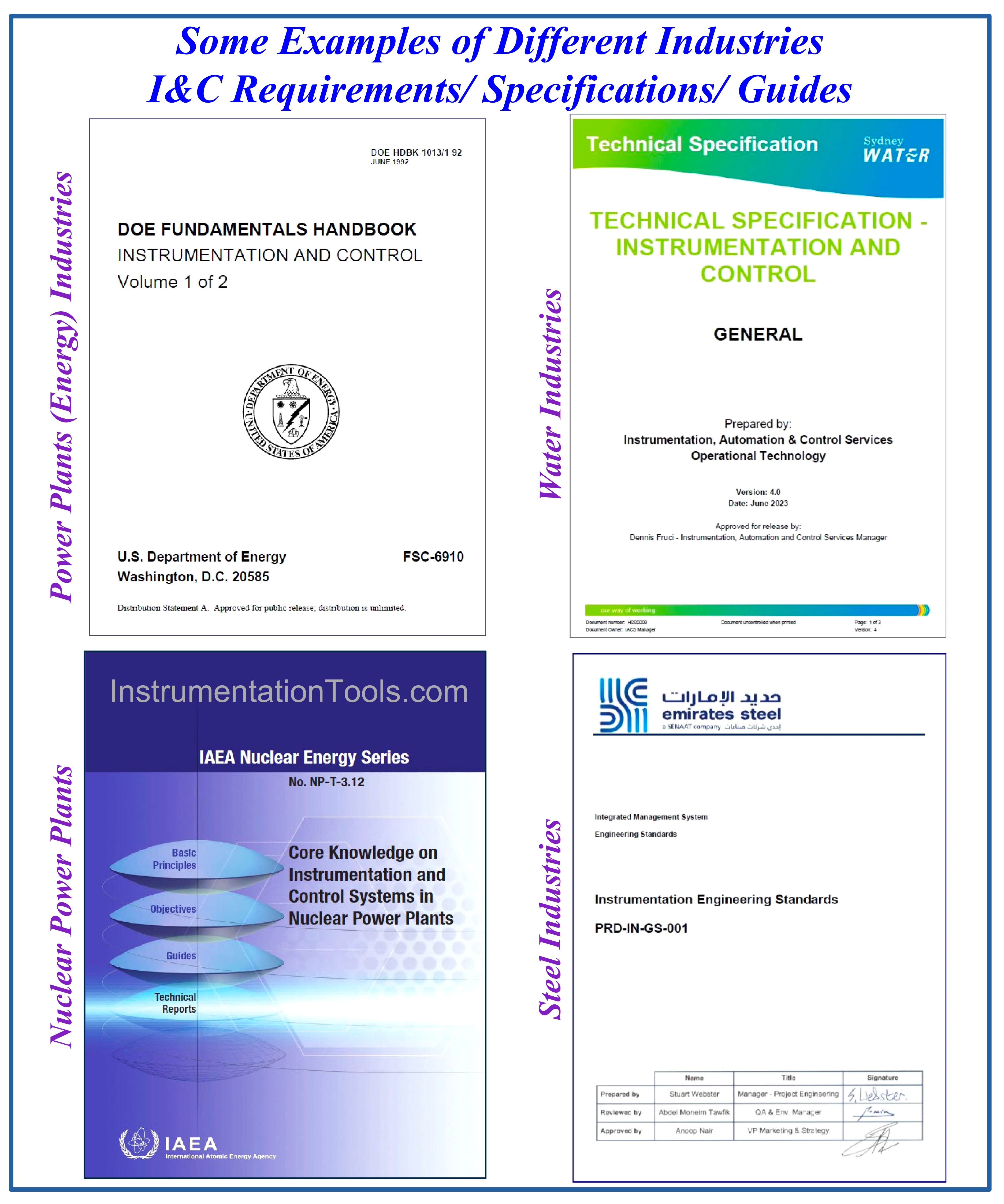
Figure-13: Some Examples of Different Industries I&C Requirements/ Specifications/ Guides.
Remark:
For preparing this article, some extractions are made from the blog post of Petroleum Training Partners, Inc. “Instrumentation and Control Engineering” from Petropartners.
References:
- Instrumentation Engineer Roles & Responsibilities
- Instrumentation Engineer Detail Design Phase
- Process Control Systems Philosophy Concept
- Detail Design Engineering Competency Aspects
